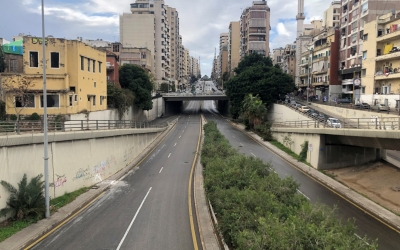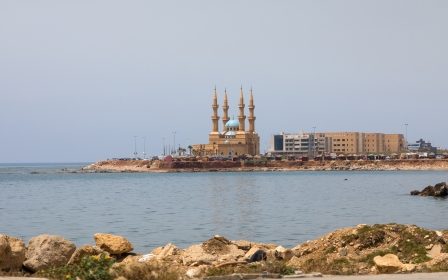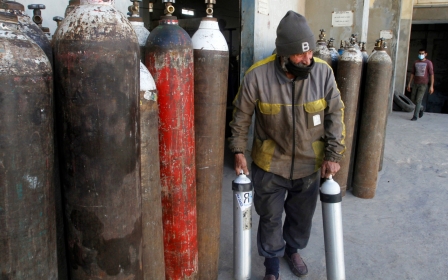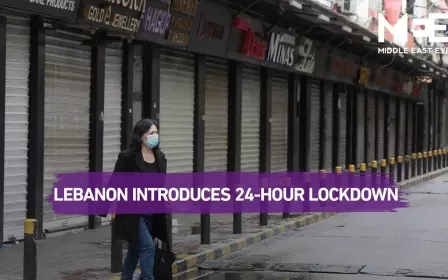Covid-19 in Lebanon: Man dies of wounds following Tripoli unrest
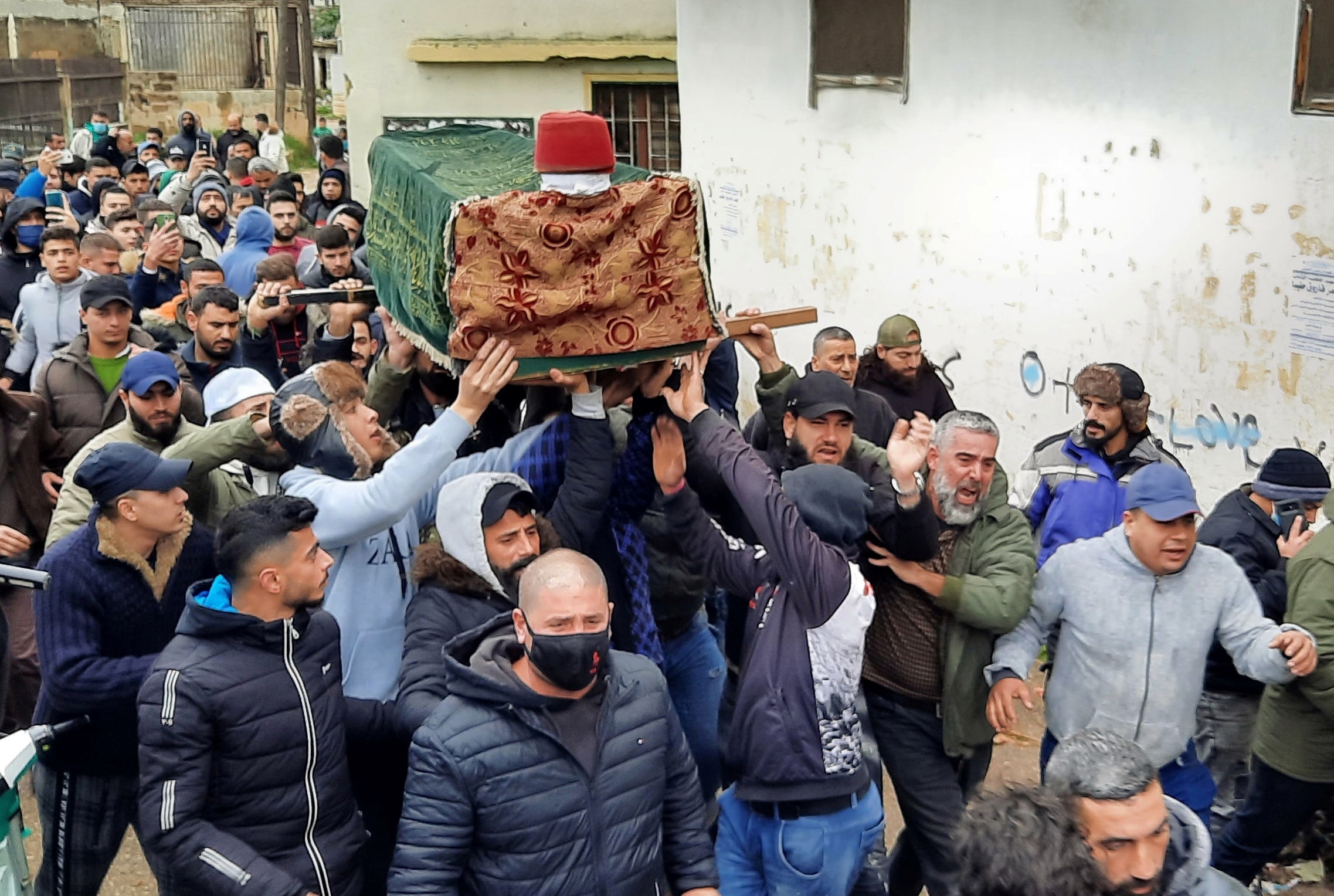
A Lebanese man died on Thursday from bullet wounds he sustained overnight during clashes in Tripoli between security forces and protesters angry that a total coronavirus lockdown has stripped them of means to face a suffocating economic crisis.
The National News Agency said 226 people were wounded in the northern city during a third night of clashes, with security forces firing tear gas and rubber bullets at protesters who threw stones, molotov cocktails and lit a car on fire.
'The government neglected the needs of Tripoli's people and used brute force...when they demanded a better life,'
- Aya Majzoub, Human Rights Watch
Security forces reported nine injured among their ranks on Twitter.
Witnesses and local media said riot police had fired live bullets as protesters tried to storm Tripoli’s government building.
Omar Tayba, a 30-year-old bakery employee, is the first fatality during three nights of violence in one of Lebanon's poorest cities, after the government imposed a 24-hour curfew this month to curb a steep surge in Covid-19 infections that has killed more than 2,500.
New MEE newsletter: Jerusalem Dispatch
Sign up to get the latest insights and analysis on Israel-Palestine, alongside Turkey Unpacked and other MEE newsletters
"My brother was in Tripoli watching the protests when he was hit," Tayba’s brother told AFP. "He was transferred to hospital and died this morning."
While the police did not comment on whether live rounds had been fired, Reuters footage showed sparks hitting the ground, apparently from ricocheting bullets, and the sound of gunfire.
Human Rights Watch (HRW) called for an investigation into the protester's death on Thursday.
"The government neglected the needs of Tripoli's people and used brute force...when they demanded a better life," HRW researcher Aya Majzoub said.
Piling misery
Lebanon’s unprecedented economic crisis and the coronavirus pandemic have piled even more hardship on the city’s suffering residents.
In 2016, the World Bank categorised Tripoli as one of the poorest cities on the Mediterranean coast, with 80 percent of its 500,000 residents living on less than two dollars per day, despite it being home to Lebanon's wealthiest politicians.
Many of the city’s residents have been left without a source of income since Lebanon imposed a total lockdown earlier this month in a bid to stem a surge in Covid-19 cases, which experts have blamed on poor government decisions. The country of six million has recorded more than 289,600 cases.
A 24/7 curfew is in force nationwide and grocery shopping is restricted to home deliveries, which are often unavailable in poorer areas.
Demonstrators in other parts of the country also blocked major roads on Tuesday and Wednesday night.
In the capital Beirut, protesters burned tyres near the parliament, while others blocked the road to the sports stadium in the capital’s west, the NNA said.
The Lebanese Red Cross said that 45 people were wounded on Tuesday, and 30 on Monday.
The army said 31 soldiers were hurt in Tuesday night's clashes. It was not immediately clear how many soldiers were included in the Red Cross count.
Half of Lebanon's population is now poor, and almost a quarter live in extreme poverty, the United Nations says, with around half of the workforce living off daily wages, according to the labour ministry.
Caretaker social affairs minister Ramzi Musharrafieh said on Tuesday that three-quarters of the population needs financial assistance.
Middle East Eye delivers independent and unrivalled coverage and analysis of the Middle East, North Africa and beyond. To learn more about republishing this content and the associated fees, please fill out this form. More about MEE can be found here.


